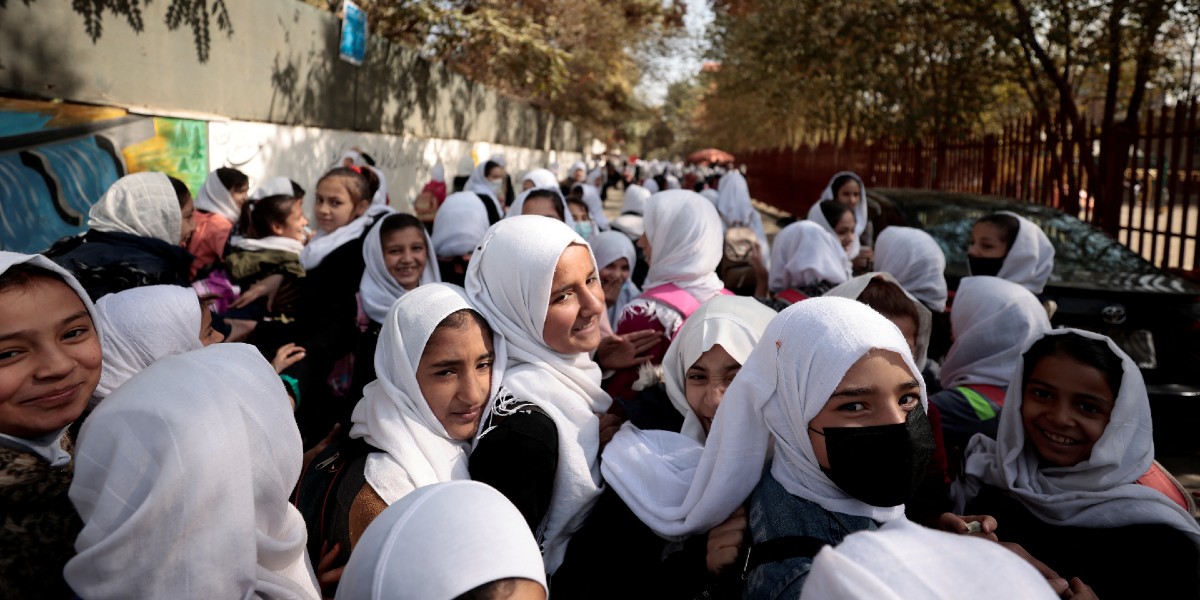Two years ago, on September 18, following the Taliban’s takeover of Afghanistan, a decree was issued prohibiting female students from attending secondary schools in the country. This decision ignited widespread reactions, but educational facilities have remained closed throughout this period.
Initially, there was some hope that students would be able to resume classes in the spring of the following year, which typically marks the beginning of the educational year in Afghanistan. However, on March 22, 2022, thousands of girls who had eagerly anticipated returning to their classrooms were left in tears as they were turned away by Taliban forces.
Taliban officials have repeatedly stated that the ban on female education is temporary. Nevertheless, despite two years having passed, girls in grades 7-12 have yet to resume their studies.
These young girls have expressed their frustration, emphasizing that the Taliban has disregarded their basic rights over the past two years.
In an attempt to cope with the mental strain caused by the prolonged school closures, some of these students have turned to alternative pursuits such as tailoring, art, and painting.
Zuhra, a tenth-grade student when the schools were initially closed, now spends her time creating art at home. She shared her concerns about the two years of her life that were wasted due to the denial of education, saying, “I was just two years away from completing high school when the schools were closed, and our dreams were shattered.”
Despite the closure of girls’ schools, dozens of Afghans, predominantly women, staged demonstrations in various cities across the country to protest the decision. However, the Taliban responded by detaining and torturing protesters, suppressing the dissent.
The international community, including members of the UN Security Council, has condemned the ban on girls attending school. Nevertheless, the Taliban’s stringent policy remains unchanged.
Female students have conveyed their sense of having their dreams dashed and living in a state of uncertainty since the closure of their schools.
They have grappled with mental pressure and depression during this period, making their lives increasingly difficult day by day. Sadaf, an 11th-grade student, shared her aspirations, saying, “I wanted to become a doctor, but we were barred from schooling. We are suffering from mental issues now.”
Some educational rights activists have organized clandestine online and local educational classes for female students. However, only a few have been able to access these classes, as the Taliban has also opposed secret schools.
Marwa, a resident of Kabul, lamented, “I was in the 11th grade when the schools were closed, and I wanted to become a doctor.”
Ziauddin, another Kabul resident, expressed his anguish, saying, “I have three daughters, and they have been deprived of schooling for the past two years.”
Amid ongoing criticism of the closure of girls’ schools, the Taliban’s acting interior minister, Sirajuddin Haqqani, during a meeting with a delegation from the Organization of Islamic Cooperation, stressed the need for patience regarding the issue of female education in Afghanistan.
This marks the second time that the Taliban has denied Afghan girls access to education, with a similar ban imposed during their previous rule in 1996. At that time, Taliban officials made promises of reopening schools for girls, but girls were unable to attend school until the Taliban government was overthrown.





